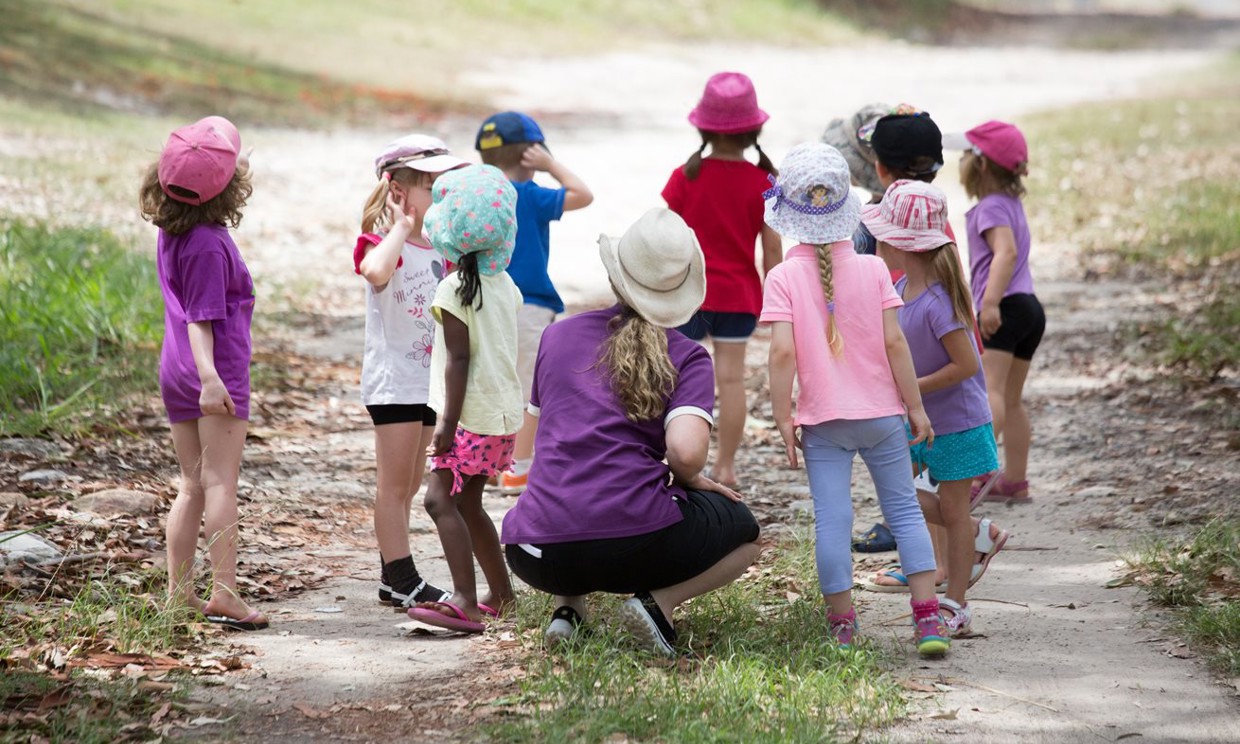Letting children roam free and spend time in natural, unstructured environments helps children increase their pretend play, language and creativity, and may lead to a decrease in bullying (Louv 2013).
Goodstart Early Learning research also shows outdoor environments that include natural spaces can contribute to more complex and imaginative child-led inquiry-based play. Outdoor spaces allow more room to explore and take on challenges that test children’s skills and abilities.
It is this research that has prompted many Goodstart Early Learning centres to organise outdoor play experiences including excursions, set up bush kindergartens and establish fruit and vegetable patches.
University of Sunshine Coast researcher Rachael Sharman has also found outdoor play may lead to lower rates of ADHD, bullying and higher creativity and problem-solving skills.
Dr Sharman’s research as a psychologist specialising in child/adolescent development looks at whether our safety obsession is helping or hindering out children.
She believes children should fail, fall and feel their own way through life, and that by bubble wrapping them, we may be hindering their development.
In an article published on The Drum, Dr Sharman says children’s development has gone backwards in the past few years.
Obesity is on the rise and physical skills are in decline. She says ever-increasing mental health problems are seen in older childhood/adolescence and unemployment rates in young adults are persistently high.
“Might over-interfering strategies to prevent injury actually hinder a child’s capacity to learn, train and build efficacy,” she questions. “In fact, is helicopter parenting downright harmful to the future of young Australians?”
Dr Sharman looks overseas to movements including forest kindergartens in Europe, similar to Bush Kinder, which is becoming popular with Goodstart Early Learning Centres.
Children spend a morning in a natural environment, regardless of the weather and play with sticks, rocks, climb trees and get muddy.
Goodstart Nambour (Queensland) and Goodstart Montrose (Victoria) have started Bush Kinder programs which have been highly successful, and responsible for driving enrolments.
Dr Sharman says research into nature-based, unstructured play environments has shown children show a lower risk of injury in these areas, perhaps because they take on the responsibility of their own safety, and improve many skills such as problem-solving.
Goodstart Early Learning’s research shows children who play outdoors are introduced to concepts such as problem-solving, language, science and caring for the environment.
Encouraging children to collect objects such as rocks, feathers and sticks is a great way to learn about patterns, sorting and similarity.
Goodstart Nambour’s early childhood teacher Laura Brazier says their program encourages supervised risk taking behaviour to build independence and encourage children to explore and investigate nature.
“Playing outdoors gives educators an opportunity to use nature to introduce children to concepts such as problem-solving, language, science and caring for the environment.”


